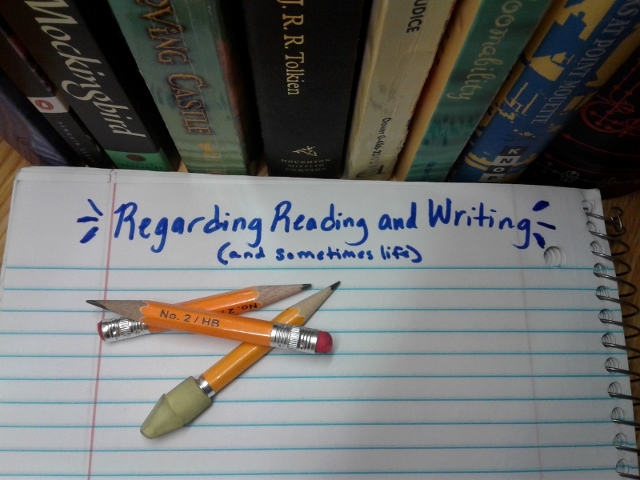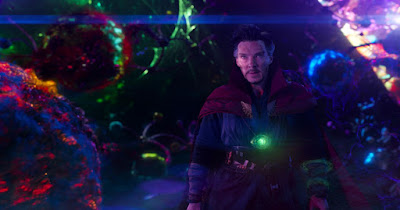Finn and King John have had a chance to be featured in Beautiful People posts. Now it is Rozella's turn!
What’s their favourite book/movie/play/etc.? There were some books in the tower that Rozella inhabited as a child. There was a set of dictionaries that helped Rozella learn about the outside world, and there were many novels. The Wicked Witch didn't like Rozella reading, and Rozella didn't want to risk the Witch's wrath, so she didn't read much until the Witch disappeared. Then, Rozella read as much as she pleased. Her favorite thing to read, however, was The Royal Magazine, which the Witch paid a subscription to. The Royal Magazine is a publication that comes out of the human kingdom and features updates about the royal families, the economy, the current fashions, and the latest entertainment. Often, the magazine featured spreads about Rozella's family. It was her only way to connect with them, and that is why she loved reading The Royal Magazine so much.
Is there anything they regret doing? Rozella regrets being so fearful after the Wicked Witch disappeared. She feared for a whole year that the Witch would come back, and it held Rozella back from doing many things, including becoming her own person.
If they were sick or wounded, who would take care of them and how? For the first thirteen years of her life, the Wicked Witch would "take care" of Rozella whenever she was sick or hurt. The Witch, however, was not a kindly nurse. Often, she would give Rozella horrible-tasting potions to make her feel better, and she never gave hugs and kisses when Rozella fell and scraped her knee. No, the Witch would give admonishments instead as she patched up the fallen princess.
In contrast, Alonzo, Rozella's cat, was a much better caretaker and companion. Whenever Rozella was sick or hurt, he would curl up next to her and comfort her. After the Witch disappeared, he tried his best to help Rozella if she ever got sick or hurt. He would bring her food, water (he's a very smart cat), and flowers.
In contrast, Alonzo, Rozella's cat, was a much better caretaker and companion. Whenever Rozella was sick or hurt, he would curl up next to her and comfort her. After the Witch disappeared, he tried his best to help Rozella if she ever got sick or hurt. He would bring her food, water (he's a very smart cat), and flowers.
Is there an object they can’t bear to part with and why? Rozella doesn't have any material possessions that she can't bear to part with, but she doesn't like to be parted from Alonzo. He has been her only companion for as long as she can remember before she is rescued from her tower. They have a very close bond.
What are 5 ways to win their heart (or friendship)?
-Treating her with equality. Even though Rozella is a princess who has lived in a tower for the past twenty years of her life, she is still smart and capable. She doesn't want to be treated differently than anyone else because she has had a different upbringing.
-Respect. Rozella is eager to learn about everything that she has no knowledge about. She only asks that her teachers treat her respectfully and don't look down on her for not knowing something yet. She doesn't like feeling dumb. Rozella also wants to be respected for the things she does know how to do. She knows a lot about gardening and tending to a variety of animals; she has been self-sufficient for seven years. She doesn't appreciate it when other royals look down on her for knowing how to grow crops, milk a cow, make cheese, sew a dress, or cook.
-Kindness. The Witch never showed Rozella much kindness, so it touches her heart when someone shows genuine kindness toward her.
-Being cared for. Again, because the Witch never cared for Rozella, Rozella's heart is easily won by people who genuinely care for her. She can be easily confused between genuine care and people pretending to care for her, though.
-Bringing her flowers. Alonzo the cat always brought Rozella a bouquet of wildflowers on her birthday. Because of this, people bringing her flowers has an association of good feelings with Rozella. Bring her flowers, and you can ensure a place in Rozella's heart.
-Treating her with equality. Even though Rozella is a princess who has lived in a tower for the past twenty years of her life, she is still smart and capable. She doesn't want to be treated differently than anyone else because she has had a different upbringing.
-Respect. Rozella is eager to learn about everything that she has no knowledge about. She only asks that her teachers treat her respectfully and don't look down on her for not knowing something yet. She doesn't like feeling dumb. Rozella also wants to be respected for the things she does know how to do. She knows a lot about gardening and tending to a variety of animals; she has been self-sufficient for seven years. She doesn't appreciate it when other royals look down on her for knowing how to grow crops, milk a cow, make cheese, sew a dress, or cook.
-Kindness. The Witch never showed Rozella much kindness, so it touches her heart when someone shows genuine kindness toward her.
-Being cared for. Again, because the Witch never cared for Rozella, Rozella's heart is easily won by people who genuinely care for her. She can be easily confused between genuine care and people pretending to care for her, though.
-Bringing her flowers. Alonzo the cat always brought Rozella a bouquet of wildflowers on her birthday. Because of this, people bringing her flowers has an association of good feelings with Rozella. Bring her flowers, and you can ensure a place in Rozella's heart.
Describe a typical outfit for them from top to bottom. When she lived in the tower, Rozella wore outfits that she or the Witch made. After the Witch disappeared, Rozella altered the Witch's dresses to fit herself. Many times, she mixed and matched parts of different dresses to make something new and entirely her own. Sometimes, for practical sake, Rozella would sew skirts into harem pants. Rozella often looked like a travelling gypsy. When she returns to civilization, she wears tailor made dresses with hoopskirts, as the current fashion dictates (and she absolutely hates it).
What’s their favorite type of weather? Rozella likes both the rain and the sun because it means that the crops are getting nutrition and will grow. She likes the sun better, though, because it means that she can sit outside.
What’s the worst fight they’ve ever been in? Rozella had many fights with the Wicked Witch, though it was mostly the Witch yelling at her for something she had done and Rozella cowering in fear. The worst of these fights ended with Rozella being shoved into the Punishment Cupboard, a small and dark cupboard that Rozella just barely fit into. This is the source of her claustrophobia problem.
What names or nicknames have they been called throughout their life? Rozella doesn't have any nicknames (though I sometimes call her "Roz" on paper because I can't be bothered to spell her full name).
What makes their heart feel alive? Rozella feels the most alive when she is doing something industrious with her hands like gardening, sewing, or washing dishes (though she does draw the line at scrubbing the floor). Out of these, gardening makes her the happiest.
And now you know a little bit about Rozella! If you are a writer, tell me one thing that your character regrets doing. If you are a reader, tell me one thing that a book or movie character cannot be parted with.
P.S. As you can see, I have been playing around with my blog design. I'm not completely happy with it yet, so bear with me as I continue tweaking things. :)
And now you know a little bit about Rozella! If you are a writer, tell me one thing that your character regrets doing. If you are a reader, tell me one thing that a book or movie character cannot be parted with.
P.S. As you can see, I have been playing around with my blog design. I'm not completely happy with it yet, so bear with me as I continue tweaking things. :)



























